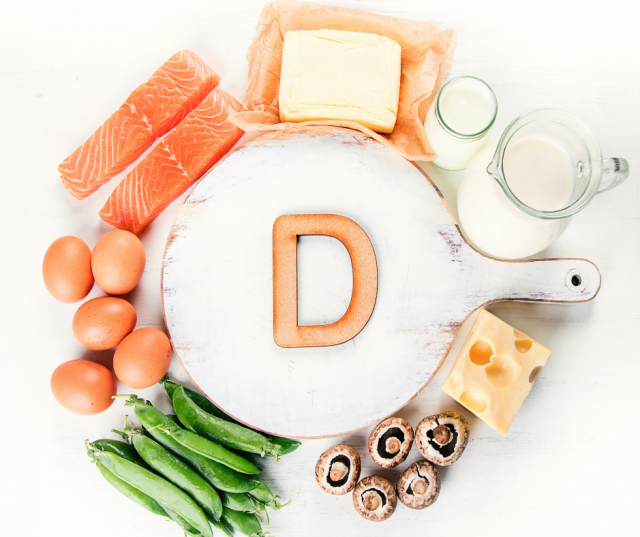News: All about Vitamin D and why its essential
By Jarrod Agosta, Accredited Practising Dietitian & Nutritionist
From March to September in Victoria, we can often be exposed to very minor amounts of sunlight. This could be due to several reasons including:
- clouds and overcast weather conditions
- low temperatures forcing people indoors more
- additional layers of clothing covering more of our skin
- fewer hours of actual daylight due to seasonal variation
As a result of one or more of these factors we may be at risk of developing a Vitamin D deficiency during the winter months.
In one investigation performed here in Victoria, known as the Geelong Osteoporosis Study, researchers found that average Vitamin D levels were considerably lower during winter than they were following the warmer months (i). This is because despite Vitamin D being present in a number of different food sources, for a lot of Victorians our main source of Vitamin D comes from the sun. Our bodies, and more specifically our skin, have a remarkable ability to transform the sun’s rays into Vitamin D that can be utilised to help keep the body functioning in a healthy way.
Did you know?
Wearing too much sunscreen inhibits the skins’ ability to produce Vitamin D. It is still very important to remain sun-smart and to protect ourselves during summer, but not enough exposure to the sun could be affecting our Vitamin D levels.
Signs and Symptoms of a Vitamin D deficiency
Unfortunately there are no immediately apparent signs or symptoms to look out for which can make a Vitamin D deficiency very hard to diagnose without having a blood test. However, there are some common non-specific signs and symptoms you could be aware of to investigate with your doctor further. These include (ii):
- Frequent bouts of illness
- Tiredness/Fatigue
- Bone/Muscle/Neck pain
A long term Vitamin D deficiency may lead to poor bone health and increase the risk of developing Osteomalacia (bone softening), Osteopenia and potentially Osteoporosis (brittle, porous bones) later in life. This is because Vitamin D plays a role in calcium regulation and both nutrients are integral to bone strength and function (iii). If you feel like you may be at risk of developing a Vitamin D deficiency then it is advisable to discuss it with your GP.
Who is most at risk of developing a deficiency?
Office workers; elderly people with limited outdoor/sun exposure (aged care facilities, hospitals); people with darker complexions; women wearing veils, hijabs or burqas; everyone during the winter months
How much Vitamin D do I need?
We need on average 5ug (micrograms) of Vitamin D per day. Once we reach the age of 51 our requirement increases to 10ug/day and then increases again to 15ug/day once we are over 70. This is due to the reduced ability of our skin to produce Vitamin D from the sun as we get older (iv).
Whilst most of the Vitamin D in our bodies can be produced via exposure to the sun, during winter and for those at a higher risk of developing a deficiency, dietary sources and/or supplements can be beneficial.
Food sources of Vitamin D:
- Cod liver oil
- Oily fish (salmon, sardines, mackerel)
- Eggs (yolks)
- Milk
- Vitamin D fortified foods (Margarine, soy milk, rice milk, butter, cheese, orange juice)
Try a Sweet Potato and Salmon Poke Bowl or Pumpkin and Spinach Risotto
What about supplements?
A Vitamin D supplement, taken throughout the winter months, can be a good way to ensure that you are receiving enough Vitamin D. It is even more advisable if fish or dairy products are not part of your regular diet, or perhaps you aren’t consuming them frequently enough. Look for a supplement that provides 1000IU per dose, and be sure to follow the instructions on the label. Most brands advise on a one per day capsule and this is sufficient to assist in meeting your requirements.
If you think you may be at risk of developing a Vitamin D deficiency, a supplement may be a good idea for the duration of the year, however, please consult with your doctor before commencing any type of long-term supplementation program.
Talk to us about Metagenics Vitamin D capsules
Sold only through healthcare Practitioners, the Metagenics range is formulated and prescribed for your specific health needs and includes one-a-day Vitamin D3 1000IU capsules.
Metagenics one-a-day Vitamin D3 1000IU capsules, available at South Eastern Active Health – Ask your Practitioner for more information at your next session or call us now – 95701552
References
i Pasco J, Henry, M, Nicholson G, Sanders K, Kotowicz M. Vitamin D status of women in the Geelong Osteoporosis Study: association with diet and casual exposure to sunlight. Med J Aust 2001;175:401-5.
ii https://www.healthline.com/nutrition/vitamin-d-deficiency-symptoms#TOC_TITLE_HDR_2
iii Holick MF. Vitamin D and bone health. J Nutr 1996;126(4 Suppl):1159S-1164S.
iv https://www.nrv.gov.au/nutrients/vitamin-d




